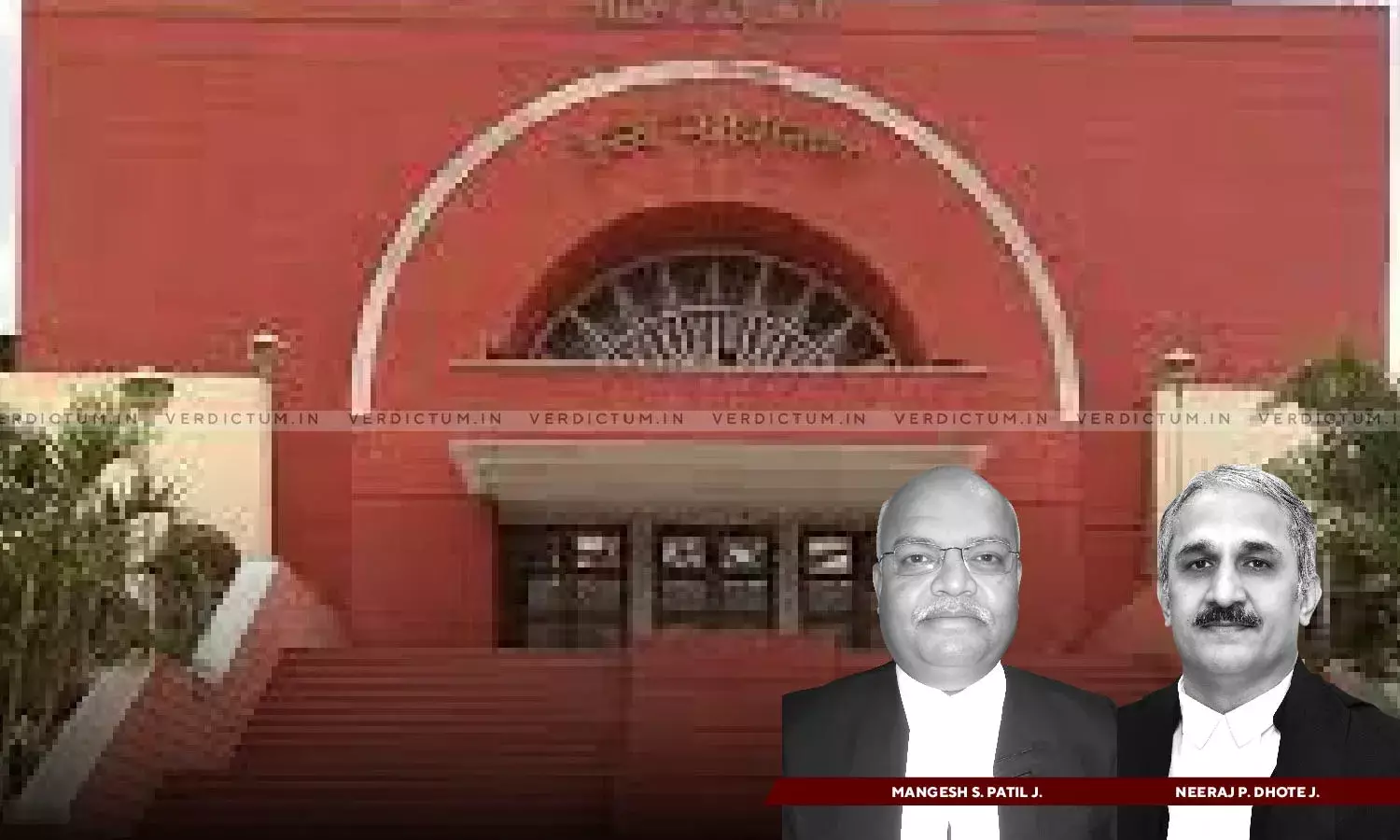Maharashtra Civil Services (Pension) Rules Can't Be Superseded By Administrative Instructions In The Form Of Government Resolutions: Bombay HC
The Bombay High Court held that the Maharashtra Civil Services (Pension) Rules, 1982 cannot be superseded by the administrative instructions under Article 162 of the Constitution in form of Government Resolutions.
The Aurangabad Bench observed thus in a batch of writ petitions filed by the Association of College and University Superannuated Teachers, Maharashtra.
A Division Bench comprising Justice Mangesh S. Patil and Justice Neeraj P. Dhote held, "... the Hakim committee recommendations would not be applicable to the teachers like the members of the petitioners who are governed by the UGC regulations. In the absence of any modification in rule 110 of the Pension Rules, the rules having been framed under Article 309 of the Constitution could not be superseded by administrative instructions issued under Article 162 of the Constitution in the form of Government Resolutions dated 05-05-2009 and 12-08-2009, which are liable to struck down. Consequently, the members of the petitioner and similarly situated persons who stood superannuated between 01-01-1996 and 31-12-2005 would be entitled to fixation of pension on the basis of the revised pay scale to be determined in accordance with the recommendations of the sixth pay commission."
The Bench said that rule 110 of the Maharashtra Civil Services (Pension) Rules, 1982 never provided for calculation of pension @ 40% of the last pay drawn.
Advocate S.V. Adwant represented the petitioner while Addl. GP S.B. Yawalkar and Standing Counsel S.W. Munde represented the respondents.
Facts of the Case -
The teachers who were governed by the Pension Rules, 1982 alleged about discrimination between them who all stood retired between January 1, 1996 and December 31, 2005 on the one hand and teachers who retired prior to 1996 and who would retire after 2006. In order to implement the sixth central pay commission recommendations, the State Government appointed a three-member State Pay Revision Committee styled as ‘Hakim Committee’ which inter alia recommended modification of the pension and the family pension.
Pursuant to such report of the committee by issuing a government resolution dated February 27, 2009, the State decided to revise the pension and introduced the modification of Pension Rules as applicable to the state government employees and other employees governed by the Pension Rules. Accordingly, rule 110(1) was modified and it provides that it is only applicable to the retirees after 01-01-2006 and holding them to be entitled to 50% of the basic pay or average basic pay received during the last 10 months, whichever is more, as the minimum pension payable.
The High Court in the above regard noted, “Admittedly, pursuant to sixth central pay commission recommendations, the Government of India under Ministry of Human Resources Development (MHRD) issued a communication addressed to the University Grants Commission (UGC) dated 31-12-2008 elaborately laying down the specific heads as also the modalities to be followed for implementation of revision of pay of teachers and equivalent cadres in universities and colleges. Pursuant to this communication, the UGC also notified all the State governments vide its communication dated 30-06-2010 regarding the directions received from the MHRD, Government of India.”
The Court added that sub-clause (g) of clause (v) of clause 8(p) expressly require the State governments if at all they were so intending, to implement the scheme comprehensively and similar was the stipulation in the communication made by the UGC to the State governments, directing the State governments if at all they intended, to implement the scheme as a whole.
“… the stand of the State government in spite of acceptance of the scheme sponsored by the Central government to make some exception as regards the teachers like the petitioners would be contrary to the stipulation in the scheme and the directions of the UGC, as has been the stand of the UGC in the affidavit in reply”, it observed.
Furthermore, the Court held “It appears that in spite of such a state-of-affair, by the impugned Government decision dated 15-02-2011, the State of Maharashtra sought to implement these directives by carving its own exception particularly in respect of the pensioners like the present petitioners. Therefore, though not strictly, inasmuch as the State of Maharashtra has its own pension rules and, therefore, the stipulation in the MHRD communications as far as pension is concerned may not be strictly applicable, still, it mandated in clause 8(g) that the recommendations of the sixth pay central pay commissions in respect of pension of the Central government employees including the eligibility of full pension i.e. 50% of the average pay or the last pay drawn, shall be adopted to all the teachers who were already on pension in the central universities, colleges etc.”
Therefore, it concluded that consequently, the members of the petitioner and similarly situated persons who stood superannuated 1996 and 2005 would be entitled to fixation of pension on the basis of the revised pay scale to be determined in accordance with the recommendations of the sixth pay commission. The Court, however, clarified that the government resolution which does not have any bearing on the rights being claimed in the petitions, cannot be struck down.
Accordingly, the High Court partly allowed the writ petitions and directed the respondent to take appropriate steps to revise the pension of the members of the petitioner within four months.
Cause Title- Association of College and University Superannuated Teachers (Maharashtra) v. Union of India & Ors. (Neutral Citation: 2024:BHC-AUG:2226-DB)




